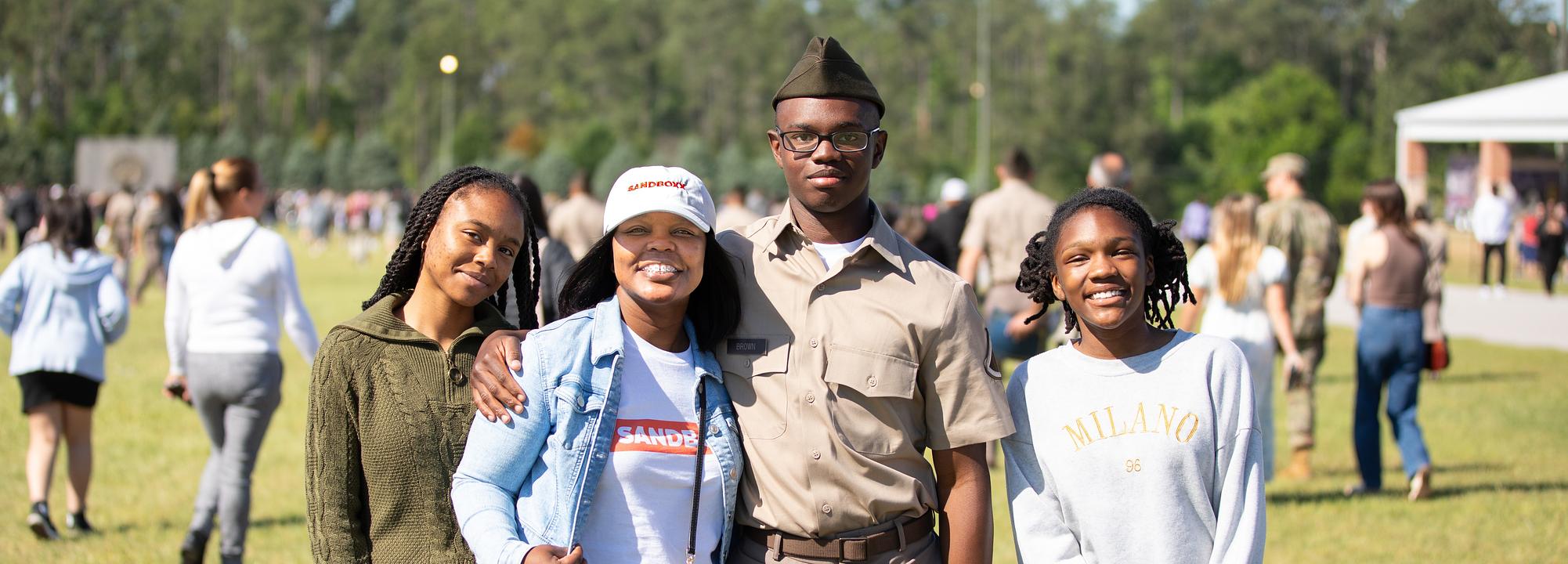- The App
- Sandboxx News
- Resources
Learn
- Company
About
Become a Partner
Support
- The App
- Sandboxx News
- Resources
Learn
- Company
About
Become a Partner
Support

Welcome! I’m SGM Kris Broadus, U.S. Army (Retired)—but please, just call me Kris.
For over 25 years, I had the honor of leading America’s sons and daughters and guiding their families through one of the biggest transitions of their lives—joining the United States Army. Now, I’m here to do the same for you.
Together, we’re going to navigate this new adventure, tackle every question you have, and get your Future Soldier ready to absolutely crush it at Basic Training. Every week until they ship to Basic Training, I will be sending you some tips and guidance on how to prepare and support their journey.
This journey will be packed with pride, excitement, and yes, maybe a few butterflies—but the rewards? They’ll last a lifetime. And I promise, every step you take to support your Soldier now will help shape their success for years to come.
When someone you love signs that enlistment contract, everything changes—for them, and for you. Whether it’s your son, daughter, partner, sibling, or friend, watching them join the Army brings a wave of emotions: pride, anxiety, excitement, and lots of questions.
You’re not just a spectator in this journey—you’re part of the support system that will help carry them through. Here’s what comes next—and how you can show up strong for the Future Soldier in your life.
After enlistment, there’s usually a gap of weeks or months before they ship to Basic Combat Training (BCT). This time is called the Delayed Entry Program (DEP). During DEP, your Future Soldier prepares physically and mentally, completes paperwork, and may attend meetings at their recruiting station.
Tip: Ask them for their ship date and write it down. Knowing when they leave helps you both plan emotionally and practically.
Basic Training lasts about 10 weeks, depending on their job and training location. It’s physically demanding, mentally challenging, and highly structured. They’ll have limited access to their phone, especially in the first few weeks.

Support doesn’t mean doing everything for them. In fact, the best way to help them grow is to let them own their preparation. That said, here are some ways to assist:
Helpful move: Review their packing list together so they don’t overpack or forget essentials.
Watching your loved one leave for training is emotional—especially if it’s their first time away from home. It’s normal to feel worried or even conflicted. So will they. But remember:
Real talk: It’s okay to cry when they leave—but send them off with confidence. They’ll carry that energy with them.
You’re not alone. There are thousands of other families and friends going through the same thing. Connect with others through:
Stay connected: Communication will be limited, but even a single letter from you can boost their morale for days.
Your loved one just made one of the biggest commitments of their life. And by standing beside them, you’ve stepped into a new role too—a source of strength, encouragement, and pride. They’ll face long days, tough challenges, and moments of doubt. But every letter, every cheer, every moment you hold it together makes a difference.
This isn’t just their journey. It’s yours, too. And it starts now.
I’ll be back next week with more tips and guidance. Until then, Hooah!
SGM Kris Broadus, U.S. Army (Retired)